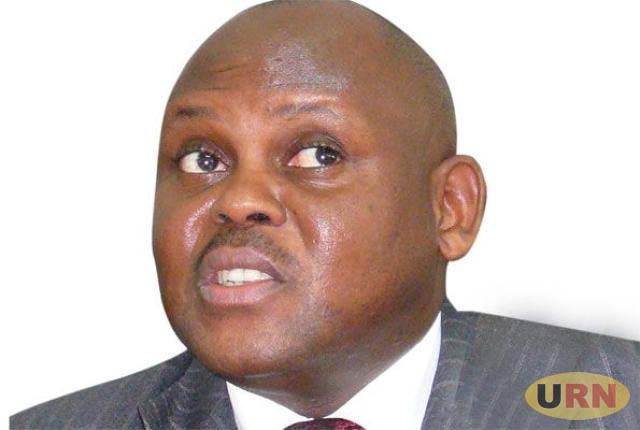
Kampala, Uganda | THE INDEPENDENT | Uganda made a big step backward by repealing a law that regulated the executive’s excesses in the budgeting process. The repeal of the Budget Act 2001 came at the peak of the contest over the allocation of resources between the Executive and the Legislative arms of the government.
The budget Act was out of a Private Member’s Bill tabled by former Buzaya MP, Isaac Musumba. It was aimed at empowering Parliament as an active participant in the budgeting Processes.
The law was also aimed at helping MPS from rubber-stamping of the budget presented by the Minister of Finance.
Since 2001, that law had arguably played a critical role in regulating the budgeting processes and ensuring adequate allocation of resources. It meant Parliament would come up with alternative economic policies after deeper analysis by officers from the budget office of Parliament.
The Budget Act became a case study for bench-marking in Africa and the Commonwealth countries including the World Bank as a tool for ensuring transparency and parliamentary oversight in the budgeting. Many African countries have since established budget offices in their Parliaments to undertake research aimed at guiding MPS on budgeting.
The government however pushed for its repeal. It said part of the law would be integrated into the Public Finance Act. The Ministry of Finance then argued that there was a need to consolidate the different laws that govern budget planning and financial management under one law.
MPS then yielded to the pressure of the government by doing away with one of the powerful tools they had to tame the government from unnecessary borrowing and supplementary expenditures. The concern about Uganda’s drastic action came up at the7th annual African Network of Parliamentary Budget Offices Conference taking place at Speak Resort Munyonyo.
The conference under the theme” The Role of Parliamentary Budget Offices in African Parliaments Fiscal Oversight Contribution to the African Development Agenda 2023 is being hosted by Uganda. Officers are attending from Kenya, South Africa, Nigeria, Malawi and Ghana among others.
The officers raised concerns that Uganda had backtracked in its resolve to ensure budget transparency when it repealed a law that had in essence granted legal backing to the budget office of Parliament.
The originator of the Budget Act 2001, Isaac Musumba was one of the speakers of the conference. Musumba, who later served as a Minister told the conference that the Executive masterminded by President Museveni had fought the law right from when he tabled it as a private Member’s Bill.
“I asked the minister for Parliamentary Affairs that the government needs to bring a law called the Budget Act. They said we shall bring … One year gone, no Bill was brought. The second year, nothing. In fact, she did not say but a very principal person in Uganda said the budget bill will pass on my dead body,” said Musumba.
He said that when he conceived the idea of the budget law, he was trying to find a way to ensure that there is regulation of the power of the budget to pass the budget and the government’s involvement in the budget.
“There was resistance by the executive because they could see from their perspective that the parliament was now going to have a say in how they distribute resources”
While Musumba had been granted leave of Parliament to table a Private Member’s Bill, he said it had to take three years before the government allowed the Budget Act should be enacted.
The highlight of the Bill was that Parliament should have a budget office to assist the members of Parliament in arriving at wisdom in their budgeting process but granting them more time to have input in the budget.
The Bill later law provided that the government could not exceed 3% of the total approved budget for that financial year without prior approval of Parliament. It was out of that law that Sessional Committees of Parliament had to provide input into the budget through the budget committee.
The Parliament Budget Committee is a Standing Committee of Parliament and all Chairpersons of the other Committees are ex-officio members of the Budget Committee. The committee focuses on the preliminary estimates and the macroeconomic plan and programs and submits recommendations to the Speaker It considers the National Budget, compile amendments, and refers them to the relevant Committees.
According to Musumba, when he, Beatrice Kiraso, and others who had vigorously pushed for the Budget Act left parliament, the officials from the Ministry of Finance rushed to repeal it.
“The people in finance were in a hurry to repeal that law. Now that the people who know why and how this law came to be are no longer in Parliament. I was not there, Kiraso was not there, there was a vacuum” said Musumba
Isaac Musumba has since realized that the budget can be an instrument by the government or members of parliament to bring down either side.
“The members of Parliament can use the budget to break the government…because if the government has its agenda and the members of Parliament have their agenda if you have a situation where the members of a particular government are thin, and there can be a deadlock”
This was witnessed recently when President Museveni asserted that MPS had no power whatsoever to “shuffle the budget”
He refused to assent to the Appropriation Bill 2024 on June 22, accusing MPS of budget corruption. He was particularly perturbed by “Budget Re-Allocation by Parliament,”
While MPS had ceded the power by repealing the Budget Act, they seemed to be operating as if the law was still in place.
Now it appears that the advice from the budget office in Parliament lacks legal backing. Officers from the Kenyan, Malawi, and Nigeria who said they are fighting in their countries to have a law governing their budget offices.
Moses Byekabye, Technical Advisor for Economic Affairs to the Ministry of Finance, Planning and Economic Development is one of those who thinks that the repeal of the Budget Act was rushed despite its good intentions. Bekabye was the first Director of Budget at the Parliament of Uganda where he served between 2000 and 2002.
He believes that the budget office and the Budget Act 2001 had strengthened the mandate of Parliament to scrutinize the National Budget. “I think what they lost was for parliament to be the implementer of this Act and that makes a big difference,” said Byekabye.
He said the people who were opposed to that law right from the onset were strong directors at the Ministry of Finance. He like Musumba believes that resource allocation is a very political and contested process because each side tries to gain an advantage over the other.
“So without the capacity to focus on the strategic things, parliaments cannot be effective. So Parliament budget offices can help to enhance the capacities of Parliament so that this contestation balances,” said Byekabye.
He said by the time the budget office was established, Parliament was weak at budget scrutiny and understanding policies. “So the parliamentary budget office helped to rebalance the contestation.
****
URN
 The Independent Uganda: You get the Truth we Pay the Price
The Independent Uganda: You get the Truth we Pay the Price



